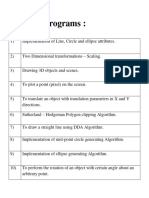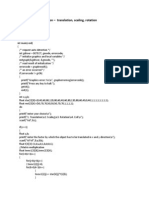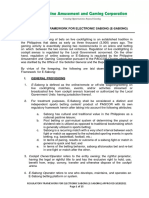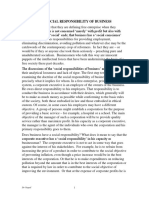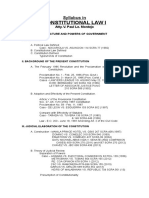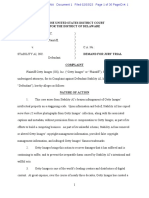0% found this document useful (0 votes)
23 views6 pagesBasic Transformations
The document is a C++ program that implements basic geometric transformations such as scaling, translation, and rotation for a polygon using operator overloading. It defines a class 'Transformation' with methods to draw a polygon and perform the transformations based on user input. The program utilizes the graphics library to visualize the transformations and runs in a loop until the user chooses to exit.
Uploaded by
aryanhiremath14Copyright
© © All Rights Reserved
We take content rights seriously. If you suspect this is your content, claim it here.
Available Formats
Download as DOCX, PDF, TXT or read online on Scribd
0% found this document useful (0 votes)
23 views6 pagesBasic Transformations
The document is a C++ program that implements basic geometric transformations such as scaling, translation, and rotation for a polygon using operator overloading. It defines a class 'Transformation' with methods to draw a polygon and perform the transformations based on user input. The program utilizes the graphics library to visualize the transformations and runs in a loop until the user chooses to exit.
Uploaded by
aryanhiremath14Copyright
© © All Rights Reserved
We take content rights seriously. If you suspect this is your content, claim it here.
Available Formats
Download as DOCX, PDF, TXT or read online on Scribd
/ 6



































